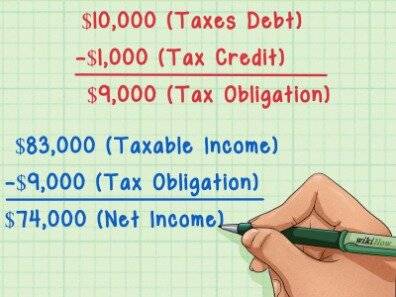
It offers features such as invoicing, expense tracking, and time tracking. Additional options include an electronic data interchange (EDI) and a fuel card interface. Small businesses can also start with Quickbooks and then later pair it with a trucking management system that integrates with Quickbooks.
Additionally, provide accurate financial data to your accountant so that they can make informed decisions and provide expert advice. When looking for an accountant, consider their experience and expertise, and look for someone with expertise in the trucking industry. They should also have a good understanding of the software and tools you use. Additionally, consider their communication and collaboration skills to ensure that they will work well with your business.
Solutions
Some software even offers free filing, which means they’ll generate tax reports for you based on your year’s finances and submit them. This can save your company time and stress and ensure your taxes are done accurately to save you money. Before you choose a trucking accounting software, get quotes from a couple of different platforms and compare their features, user-friendliness and any hidden fees lurking. However, different software has different features and pricing, so it’s important to take your time and intentionally choose the best accounting software for a trucking company for you. TruckingOffice is a TMS service that helps owners and operators track their miles, manage their expenses, pay attention to their profits and stay on top of fleet maintenance. However, they’re best used in tandem with QuickBooks for more comprehensive accounting and tax services.
- They can identify areas where you may be overspending and provide advice on how to reduce costs.
- If these payments are not made on time, the business may be subject to penalties.
- It also manages employee and contractor paperwork like W-2 and 1099 forms.
- Keeping track of all the changes in the tax code can be a nuisance and knowing how and when to apply for write-offs is more difficult than it may seem.
Below, we’ll review the steps necessary for self-employed truck drivers to take in order to establish a trucking accounting system. A step-by-step approach to accounting in the trucking industry will make the process go off without a hitch. Learn more about trucking bookkeeping and accounting, how to set up a proper accounting system, and avoid many pitfalls. Instead of wasting time digging into receipts and software, you can request a consultation with Factoring Express. Even if you hire a certified public accountant (CPA), you still need to know the basics of truck accounting.
Accounting for Trucking Business
A profit and loss statement is an accounting tool used to calculate net income. It lists all revenue and expenses for a set period of time (usually quarterly or annually). A profit and loss statement can also be used to calculate cost-per-mile, helping you choose loads that will maximize your business income. Tailwind TMS can be pricey for very small trucking company software, but it has a lot to offer mid-size and larger companies. For instance, Tailwind’s Unlimited package enables tracking an unlimited number of shipments per month. It also is capable of managing multiple business branches under the same umbrella.
- Other QuickBooks trucking integrations require complicated setup and third-party connectors.
- Variable costs, on the other hand, are expenses that change based on how much the truck is used, such as fuel or maintenance costs.
- Additional options include an electronic data interchange (EDI) and a fuel card interface.
- It also has a powerful fleet maintenance program that will track your fixed assets and help you schedule routine maintenance, whether it’s based on months or miles driven.
- However, accrual basis accounting can be more complicated than cash basis accounting, which only records transactions when cash changes hands.
This gives the option to manually fill out a report when you need to save on admin costs or you can use the automatic report feature when you’d prefer to save on time. For example, their IFTA mileage tracker auto-records toll and non-toll mileage to automatically create IFTA tax reports. By knowing your cost per mile, you can ensure that you are making a profit and not losing money on your operations. Without business trucking, it would be difficult to move goods from one place to another.
Individual Business Owners
From bookkeeping services to dispatch, there are a lot of moving parts that need to be coordinated. By using one wisely, the company can save money, build credit, and develop relationships that will benefit the company in the long run. Finally, a business credit card can help adjusting journal entries in accrual accounting build relationships with suppliers and vendors. For example, if you make a delivery, be sure to note the address, the time, the amount of money you were paid, and any other relevant details. If these payments are not made on time, the business may be subject to penalties.

Setting clear expectations for deadlines and output is also important when working with a trucking accountant. Make sure that you both understand what is expected in terms of deliverables and timelines so that you can work together effectively to achieve your financial goals. It’s crucial to have adequate insurance coverage and to regularly set aside a portion of profits to build up your business’s cash reserves. This can help you cover unexpected expenses and emergencies without affecting your business’s financial health. Trucking businesses need to ensure that they receive payments for services rendered to maintain profitability. Implementing a system for invoicing and payments speeds up the payment process and enables a more positive cash flow.
Kevin’s Trucking Company: Balance Sheet, January 1, 2020
Streamline your IFTA reporting by using software to automate the process each fiscal quarter so you can focus on other elements of fleet management. Also, we believe that it has the simplest user interface (UI) among all the software listed here, making it a great option for trucking owners with no accounting background. If your trucking company doesn’t require accounting features and solely focuses on trucking management, then Rigbooks is a cost-effective solution. Unlike other trucking-specific management software, Q7 does not require integration with accounting systems, as it already has built-in accounting capabilities.